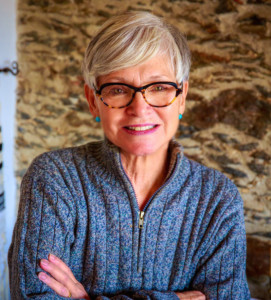By Rabbi Barbara Aiello
Several weeks ago the Jewish world celebrated the holiday of Tu B’Shevat – the new year of the trees. Did you know that there is another Jewish holiday with a similar name? It’s called Tu B’Av and it’s the Jewish day for love.
How did the ancients celebrate Tu B’Av? The holiday falls in late summer so as the full summer moon shone on an August night, the young girls of marriage age would don white dresses and dance in the fields outside of the Jerusalem walls. The single young men would follow the girls, in the hopes of finding a bride.
What we did and how we did it speaks volumes about our Jewish traditions and our unique perspective on relationships, including choosing the young man or young woman who would be one’s “B’shert,” or “meant to be.”
Remarkably the girls who danced on Tu B’Av were wearing borrowed dresses. That was the rule. No one was to make or buy a special dress for the occasion. Instead each girl was to borrow a dress so that the young men who were watching would not be distracted by superficial considerations. This to eliminate the possibility that choosing the girl with the most expensive dress would be a ticket to marry into a rich family.
Tradition tells us that the young men were encouraged to observe young women whose dancing was joyful and spirited because these would be the girls who would bring joy and spirit to their lives.
In Israel, Europe and America there has been a recent revival of Tu B’Av festivities. Scholars and historians have studied the festival’s origins and some advance the possibility that the modern Valentine’s holiday grew out of the ancient Jewish celebration of love.
Could be. It wasn’t so many years after Temple times – 270 years to be exact – that a sourpuss old Roman emperor, Claudius, outlawed marriage. There were those who defied his decree, including a young priest named Valentine. When Claudius found out, he had Valentine thrown into jail.
Valentine’s crime? He secretly held weddings for young couples who were in love and who wanted to get married. And for that he was jailed and executed. Today Valentine’s efforts are remembered as evidence of what Jewish tradition emphasizes in the Song of Songs: “Many waters cannot quench love; neither can the floods drown it.”
Indeed in the Torah we read about Jacob, who fell in love with Rachel. Jacob carried his love for Rachel in his heart for 14 years before he could marry her.
The Torah tells us that indeed love is strong.
In ancient times in Eretz Israel, God’s voice spoke through Jacob. Later in the Roman Empire, God’s voice spoke again, through through the priest called Valentine.
From ancient times until Valentine’s Day, everyone can share in the meaning of this little festival. For we know that through our ancients, God speaks to us. And when it comes to human emotion our traditions seem to be telling us something really important – that nothing… nothing … is stronger than love. Chag Sameach!

